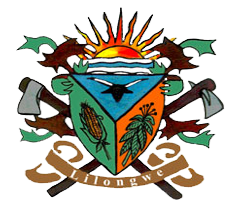
Request for Expressions of Interest for
the Flagship Projects for Lilongwe City
Background
Lilongwe City Council (The Council) was established by an Act of Parliament (The Local Government 2010 Amended). The Act mandates the Council to provide services to the City Residents. The Council is composed of the political and administrative structure. The Mayor heads the political structure which comprises of 27 elected councilors representing each of the Council’s wards and 4 Members of Parliament. The Chief Executive Officer heads the Secretariat which comprises technical departments that comprises of Administrative Services; Human Resources; Parks, Precreation and Environment; Engineering Services, Health and Social Services; Financial Services, Town Planning and Estates Management Services; Education; and Trade, Commerce and Industry, Education, and other devolved sectors.
Lilongwe is the largest city in Malawi. In 1975, a decision was made to shift the capital from Zomba to Lilongwe. This was done with an aim of concentrating Government administration in one city and stimulate development in the Central and Northern Regions by establishing a major growth point in the center of the country.
As a planned city, Lilongwe is divided into 4 sectors: Old Town, Capitol Hill, Kanengo, and Lumbadzi. The design clusters residential, employment and service areas around each center, in order to reduce travel distances and reduce congestion. The city is further divided into 58 areas. The numbers are assigned chronologically, not geographically. Lilongwe is located on a plateau in Central Malawi, forming part of the East African Rift Valley and has a land area of 474 square kilometers. The city is situated at the center of a large agricultural area, and since the 1920s has served as a major agricultural market center for the Central Plateau Region.
Due to rapid population and urbanization growth, Lilongwe’s public spaces are in danger. A boom in commercial activities in strategic areas of the city has led to some open spaces or public land that was initially planned for recreation being squatted upon or being utilised for a different purpose all together (change of use). The fewer public spaces available for City dwellers lack adequate facilities to support their users.
Lilongwe city offers economic opportunities but lacks necessary financial resources to meaningfully implement its significant development plans and provide the required basic infrastructure and urban services which is an important pre-requisite for economic development to take place. Some of the investment opportunities that have the potential to spur development activities and provide better services to the Residents of the City are as follows:
Market
The City has few market facilities which are not properly maintained. Coupled with high urban migration and high un-employment rate, people are compelled to join market vending hence leading to congestion, unsafe and unhygienic practices. Evidently, street vending has become rampart and a threat to security, women being assaulted and compromise in waste management.
Bus Terminals
The City does not have an International Bus Terminal. The local bus terminal is dilapidated and an eye sore to the City. The current bus terminal poses challenges to the safety and other related transport concerns. It does not have modern amenities befitting a City Infrastructure
Recreation Facilities
The Council’s facilities at the Community Centre Ground are dilapidated, archaic and poorly managed. There is need to modernise the facilities so that sporting activities are improved.
Youth Resource Centre
As for the youths, there are no adequate facilities earmarked for the areas of life skills, entrepreneurship, reproductive health education, counselling and sports development. There is need for a City that is youth friendly considering that they are leaders of the next generation.
It is against this background that the Council wishes to partner with the Private Sector in providing services to the Residents of the City in the above areas namely; Multi-Storey Modern Market, International Bus Terminal, Community Centre and Youth Resource Centre.
Qualification criteria
The investor should provide the information indicating the Core business of the firm(s) and number of years in the business.
Relevant experience, which should specifically include the following:
Successful sourcing of finance for the previous projects or demonstrate having adequate source of finance (credit lines) for the successful implementation of the Project.
Development and provision of services in the area of interest; that is, Markets, Bus Terminal, Community Centre or Youth Resources Centre, within the region or in less developed countries.
Technical and managerial capability of the Investor (Provide only the structure of the organization, general qualifications, and number of key members of staff. Do not provide CV of the staff). Key Experts will not be evaluated at the shortlisting stage.
The Invitation
The Public Private Partnership Commission in collaboration with the Lilongwe City Council now wishes to invite interested and qualifying Private Sector Investors to express their interest in the following areas:
- Lot 1: Wenela Modern Multi-Storey Market
- Lot 2: International Bus Terminal
- Lot 3: Community Centre
- Lot 4: Youth Resource Centre
The Submission should be clearly marked “Expression of Interest for the Flagship Projects for Lilongwe City”. Submissions can be done through electronic transmission or through hard copies. Interested Investors submitting hard copies are advised to submit four (4) hard copies.
Expressions of interest should be submitted on or before 9th June 2021 to the following address:
The Chief Executive Officer
The Public Private Partnership Commission
2nd Floor, Livingstone Towers, Glyn Jones Road
P.O. Box 937,
Blantyre
Malawi.
Fax : +265 1 821 248
Email : info@pppc.mw; procurement@pppc.mw
